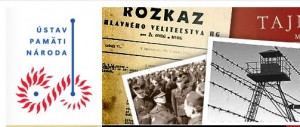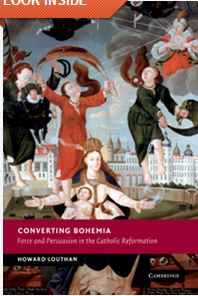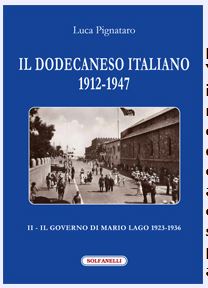“Political Exile from Central and Eastern Europe. Motives, Strategies, Activities and Perception in the East and the West 1945-1989”
Bratislava, Slovakia
November 19-20, 2013
Deadline for submitting abstracts: July 15, 2013
The Nation’s Memory Institute (Ústav pamäti národa, Slovakia) and European Network Remembrance and Solidarity (Warsaw) in collaboration with the Institute of National Remembrance (Poland), the Study Centre for National Reconciliation (Slovenia) and the German association for East European Studies (Berlin) launched a call for papers for their upcoming conference titled “Political Exile from Central and Eastern Europe. Motives, Strategies, Activities and Perception in the East and the West 1945-1989”.
The international scientific conference aims to examine political exile organisations from countries of the former Soviet bloc. The conference will discuss such questions as the importance of actions of anti-communist exile organisations in the struggle against communist regimes in Central and Eastern Europe. The range of their anti-communist activities was extremely wide. From directly supporting homeland’s anti-communist movement with ideas, books, journals and other means, to informing governments and the public in democratic states about what life is like behind the Iron Curtain and spreading anti-communist propaganda through Eastern Europe and worldwide. Exile groups have tried to agitate and even fight against the communist regimes using various resources and methods.
One of the aims of the conference is a comparative view of the exile groups from different countries, finding the commonalities among their activities, but also their various political ideas and backgrounds, which also cause differences between them. There were also several different political conceptions among the exile groups directed by strong personalities, often working side by side and sometimes against one another. In addition, however, there was a common goal among the exile groups, especially in terms of political orientation, to overcome the communist regimes and strive for freedom and democracy. That common goal played an important role in the view on political exile. For some groups it was very important also to struggle for an independent state (for example, Slovaks, Ukrainians, Latvians, Estonians and Lithuanians), which often went hand in hand with the engagement against communism.
Eligible topics
The structure will beaccording to the following sections:
Waves of political exile (1948, 1956, 1968, 1981)
Which were the significant waves of political exile between 1945-1989 in Eastern Europe?
Are there transnational characteristics to be found among immigrants of the different waves?
Did the waves bring new thoughts or ideas into already established exile groups?
Did the representatives of these waves try to create new exile organisations or did they get involved in already established organisations?
How and to what degree did they integrate into the society of their new homeland?
What images of their homeland have these different exiled groups kept?
How did immigrant families’ relation to their homeland change over the decades?
Political groups and individuals and their concepts in exile
Which groups, centres and individuals played a significant role and what was their political orientation (conservative, social democratic, liberal)?
Were there any problems relating to different political orientations, like disagreements or unwillingness to cooperate?
What understanding or vision of Europe existed among the exile groups? Were there any plans for a Federation of Central and Eastern European states?
How did they influence the view of Eastern Europe in democratic Western countries?
What about constitutional arrangement concepts?
Which role did prominent immigrants play in political exile?
Mutual relationships between the exile organisations of individual countries and nations
How did communication take place between political exile groups from individual states and nations?
Which topics were regarded as crucial and common by these groups?
What were the relationships like between the representatives of exile groups from different states and nations? How did they cooperate or why not?
What importance was attached to ethnicity or nationality by groups living in one country (e.g. between Czechs and Slovaks, Ukrainians and other nations of the Soviet Union)?
Information channels and support for the anti-communist opposition in home countries
How and for what reasons did immigrant and exile groups try to keep in touch with their home countries?
What influence did the media and exile journals have in delivering information to the “East” and getting information from the “West”?
How were exile journals and information received behind the Iron Curtain?
How did exile groups evaluate the chances and risks associated with overcoming communist regimes?
How did support for homeland oppositional movements and organisations happen?
The reaction to immigration and exile groups in communist and democratic states
What was the response of the communist and democratic governments to the activities of the political exile groups and individuals?
How did communist regimes regard the political exile and leaders abroad? How did they act against them and with what means (propaganda, influencing the “West”)?
Were there any plans or attempts to persecute people (e.g. members of the emigrants’ families)?
The role of the Secret Services
What was the role of the secret services in the “West” and the “East” in relation to immigrants and exile groups? Which methods, strategies and actions were used?
How did different immigrant journalists perceive the secret service in the “West” and “East” and the détente policy? How did the détente policy influence the broadcasting of Radio Free Europe and other radio stations?
Were the communist secret services able to influence political exile groups with the aid of agents or by other means? In contrast, how did Western states and their secret services react to them?
Guidelines for submission
Please submit an abstract of your paper (half to at most one page, max. 2400 letters) as well as a brief biography including your current position by July 15, 2013. The organisers intend to produce a post-conference publication.
Proposals should be sent to: jasek@upn.gov.sk or by post to:
Ústav pamäti národa
Nám. Slobody 6
817 83 Bratislava 15
Slovakia
The Conference languages will be English and Slovak. Simultaneous translation will be provided. Organisers will cover the accommodation and meals during the conference as well as part of the travelling costs.
Organizers
Nation’s Memory Institute (Ústav pamäti národa, Slovakia)
European Network Remembrance and Solidarity (Warsaw)
The Institute of National Remembrance (Poland)
Study Centre for National Reconciliation (Slovenia)
German association for East European Studies (Berlin)
Information & contacts
Mr Peter Jašek
tel.: 00421 2 593 00 338
e-mail: jasek@upn.gov.sk














